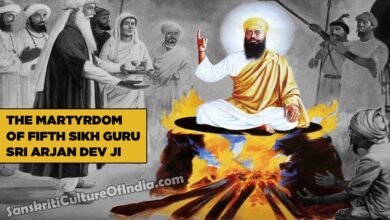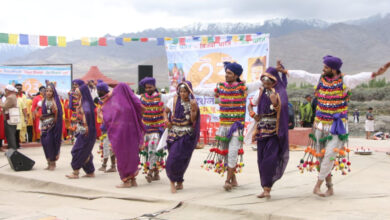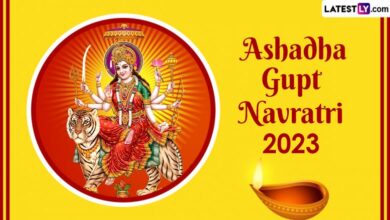Jyestha Purnima Festival in India
Celebrate the auspicious Jyestha Purnima with our special offerings and rituals. Learn about the significance of this sacred day and how you can observe it with devotion.
Quick Facts:
Date: Full moon day of the Hindu month of Jyeshtha
Main Components: Full moon day in the lunar month of Jyestha in the Hindu calendar, considered highly auspicious for performing religious rituals and ceremonies.
Popularity: Jyestha Purnima is a popular Hindu festival celebrated on the full moon day in the month of Jyestha.
Pairings: The full moon day of the month of Jyestha, celebrated in Hindu culture.
Variations: 1. Jyestha Purnima is a sacred day in Hinduism dedicated to worshipping Lord Vishnu.
2. Jyestha Purnima is also known as Vat Purnima, where married women pray for the well-being and longevity of their husbands.
3. Jyestha Purnima is celebrated with ritual baths, fasting, and offering prayers to the gods.
What is Jyestha Purnima?
Jyestha Purnima is a significant Hindu festival celebrated on the full moon day in the month of Jyestha, which falls in May or June. It is also known as Vat Purnima and is dedicated to the worship of the banyan tree. Married women observe a fast and pray for the well-being and longevity of their husbands. They tie a sacred thread around a banyan tree and perform rituals to seek blessings for a happy and prosperous married life. The festival is also celebrated with cultural events, feasts, and offerings to the deities.
Jyestha Purnima holds great spiritual and cultural significance for Hindus, as it symbolizes the bond of love and devotion between husband and wife. It is a time for married women to express their gratitude and love for their husbands and seek blessings for their happiness and prosperity. The festival also promotes the conservation and worship of nature, as the banyan tree is considered sacred and is central to the rituals and traditions of Jyestha Purnima.
Significance of Jyestha Purnima in Hinduism
Jyestha Purnima, also known as Vat Purnima, holds great significance in Hinduism. It is a day dedicated to the worship of the Vat Vriksha (Banyan tree) as it is believed to be the embodiment of the Trimurti – Brahma, Vishnu, and Shiva. Married women observe this day for the well-being and longevity of their husbands, while unmarried women pray for a suitable life partner.
On this auspicious day, devotees also take a holy dip in rivers and perform various rituals to seek blessings from the gods. The significance of Jyestha Purnima lies in the belief that it brings prosperity, happiness, and fulfillment of desires to those who observe it with devotion and sincerity.
Rituals and customs associated with Jyestha Purnima
Jyestha Purnima, also known as Vat Purnima, is a Hindu festival celebrated by married women to pray for the well-being and longevity of their husbands. On this day, women observe a day-long fast and perform rituals such as tying threads around a banyan tree, known as vat vriksha, and offering prayers to the tree. This festival is also associated with the worship of the goddess Savitri and is considered to be a significant day for married women in Hindu culture.
The customs and rituals associated with Jyestha Purnima are deeply rooted in the belief of marital harmony and the well-being of one’s spouse. It is a day for women to express their love and devotion for their husbands and seek blessings for their long and prosperous life. The festival holds great significance in Hindu culture and is observed with great enthusiasm and devotion by married women across India.
Legends and stories related to Jyestha Purnima
Jyestha Purnima is a significant day in Hindu mythology, with several legends and stories associated with it. One popular belief is that it is the day when Lord Buddha attained enlightenment under the Bodhi tree. Another story is that it is the day when the holy river Ganga descended to earth from the heavens. These myths and legends add to the spiritual significance of Jyestha Purnima, making it a day of great importance in Hindu culture.
In addition to these legends, Jyestha Purnima is also associated with the worship of the Hindu deity, Lord Vishnu. It is believed that observing fast and offering prayers on this day can bring blessings and spiritual growth. Many devotees also perform rituals and take part in charitable activities as a way of seeking divine grace and showing gratitude for the blessings in their lives. Jyestha Purnima holds a special place in Hindu tradition, with its stories and beliefs enriching the cultural and religious practices of the community.
Importance of holy baths and charity on Jyestha Purnima
Jyestha Purnima is a significant day in the Hindu calendar, and it is believed that taking a holy bath on this day can wash away one’s sins and bring blessings and prosperity. Many people flock to sacred rivers and lakes to take a dip on this auspicious day, such as the Ganges River in India. It is also a day for performing acts of charity and giving to those in need, as it is believed that the positive karma gained from giving will bring good fortune and blessings.
Charity on Jyestha Purnima is considered a great virtue and is believed to bring immense blessings and prosperity to those who practice it. Many people choose to donate food, clothing, and money to those in need on this day, as it is believed to bring happiness and fulfillment to both the giver and the receiver. By practicing acts of charity on Jyestha Purnima, individuals are able to cultivate a sense of compassion and kindness, while also receiving the blessings of the divine.
Observing fasts and prayers on Jyestha Purnima
On Jyestha Purnima, many people observe fasts and prayers as a way to seek blessings and purification. This day holds significance in Hindu and Buddhist traditions, and is considered an auspicious time for spiritual practices. Fasting and praying on this day is believed to bring good fortune and prosperity, and is a way for individuals to connect with their faith and reflect on their spiritual journey.
The fasts and prayers on Jyestha Purnima are often accompanied by acts of charity and kindness, as people seek to spread positivity and goodwill. It is a time for self-discipline and self-reflection, as individuals focus on their spiritual growth and seek to deepen their connection with the divine. By observing this tradition, people hope to invite peace and blessings into their lives and the lives of those around them.
Jyestha Purnima celebrations and festivities
Jyestha Purnima, also known as Vat Purnima, is a Hindu festival celebrated on the full moon day in the month of Jyestha. It is a time for married women to pray for the well-being and longevity of their husbands by performing various rituals and offering prayers to the Vat Vriksha (Banyan tree). The day is marked by colorful festivities, with women dressing up in traditional attire, applying mehendi, and participating in various cultural activities.
The celebrations of Jyestha Purnima often include community gatherings, feasting, and singing traditional songs. It is a time for married women to come together to celebrate their bond with their husbands and seek blessings for their marital happiness and prosperity. The festival also holds significance in fostering a sense of unity and camaraderie among the women in the community.
Jyestha Purnima in different regions and cultures
Jyestha Purnima, also known as Vat Purnima, is celebrated in different regions and cultures across India. In the western state of Maharashtra, married women observe a fast and tie threads around a banyan tree, praying for the long life and prosperity of their husbands. In the northern state of Uttar Pradesh, the festival is dedicated to the worship of the banyan tree and is known as Vat Savitri Vrat. Women perform rituals and pray for the well-being of their husbands.
In the eastern state of Odisha, Jyestha Purnima is celebrated as Snana Purnima, where devotees take a holy bath in the river and worship Lord Jagannath. In the southern state of Karnataka, the festival is known as Devara Duddu and is dedicated to Lord Shiva. Devotees take a holy bath in rivers and visit Shiva temples to seek his blessings. Despite the regional variations, the festival is a time for worship, prayer, and the celebration of marital relationships.
Modern-day relevance and practices of Jyestha Purnima
Jyestha Purnima, also known as Vat Purnima, is a sacred Hindu festival celebrated on the full moon day in the month of Jyestha. It is a day when married women observe a fast and pray for the well-being and longevity of their husbands. In modern times, the festival is still observed by many Hindu women, who wake up early to perform rituals, tie threads around a banyan tree, and pray for the health and happiness of their spouses.
The festival holds a special significance in Hindu culture, as it emphasizes the importance of marital harmony and the well-being of the family unit. While the traditional practices may vary in different regions, the core values of love, devotion, and respect for one’s partner remain central to the celebration of Jyestha Purnima.
Impact of Jyestha Purnima on spiritual growth and well-being
Jyestha Purnima, also known as the full moon day in the month of Jyestha, is considered highly auspicious in Hindu culture. It is believed that on this day, the positive energy from the moon has a profound impact on one’s spiritual growth and well-being. Many people participate in spiritual practices such as meditation, chanting, and offering prayers to harness the energy of the full moon and seek blessings for their overall health and happiness.
The impact of Jyestha Purnima on spiritual growth and well-being is also reflected in the traditions of giving and charity. It is common for people to engage in acts of kindness and generosity on this day, as it is believed to bring blessings and positive karma. This emphasis on selflessness and compassion further contributes to the overall sense of spiritual fulfillment and well-being on Jyestha Purnima.
Hidden Facts
1. Jyestha Purnima is a full moon day that falls in the Hindu month of Jyestha, which typically corresponds to May or June in the Gregorian calendar.
2. It is considered an auspicious day for performing religious rituals and seeking blessings from deities.
3. In some regions of India, Jyestha Purnima is celebrated as Vat Purnima, where married women fast and pray for the well-being and longevity of their husbands.
4. It is also known as Buddha Purnima, as it is believed to be the day when Gautama Buddha was born, attained enlightenment, and achieved Nirvana.
5. Many Buddhists observe this day with meditation, prayers, and acts of kindness.
Top 10 Best Wishes For Jyestha Purnima
1. May this Jyestha Purnima bring peace and happiness to everyone #JyesthaPurnima #Peace #Happiness
2. Wishing for prosperity and good fortune on this auspicious day #Prosperity #GoodFortune
3. May the divine blessings of Lord Buddha fill your life with positivity #DivineBlessings #LordBuddha
4. Wishing for a world filled with love and compassion #Love #Compassion
5. May this Jyestha Purnima bring success and joy to all #Success #Joy
6. Wishing for harmony and unity among all people #Harmony #Unity
7. May the light of wisdom shine upon you on this special day #Wisdom #Enlightenment
8. Wishing for good health and well-being for everyone #GoodHealth #WellBeing
9. May this Jyestha Purnima mark the beginning of new opportunities and growth #NewOpportunities #Growth
10. Wishing for a day filled with blessings and positivity for all #Blessings #Positivity
Top 10 Best Messages For Jyestha Purnima
1. Wishing everyone a blessed and joyous Jyestha Purnima! #JyesthaPurnima #Blessings
2. On this auspicious day, let’s seek the divine blessings of Lord Buddha. #JyesthaPurnima #LordBuddha
3. May the full moon of Jyestha Purnima bring peace and prosperity to all. #FullMoon #Prosperity
4. Remembering the teachings of Lord Buddha on the occasion of Jyestha Purnima. #Teachings #LordBuddha
5. Let’s celebrate the beauty of nature and the spiritual significance of Jyestha Purnima. #Nature #Spirituality
6. Happy Jyestha Purnima to all those celebrating this special day! #Celebration #Festivity
7. May the light of the full moon illuminate our lives with happiness and positivity. #FullMoon #Positivity
8. Reflecting on the significance of Jyestha Purnima and its relevance in our lives. #Reflection #Significance
9. Sending warm wishes and good vibes to everyone on the occasion of Jyestha Purnima. #WarmWishes #GoodVibes
10. Embracing the energy of the full moon and the blessings of Jyestha Purnima. #Energy #Blessings
Top 10 Best Quotes For Jyestha Purnima
1. “On the auspicious occasion of Jyestha Purnima, may we all be blessed with peace, prosperity, and happiness.”
2. “As the full moon shines bright on Jyestha Purnima, may it illuminate our lives with love and positivity.”
3. “Jyestha Purnima is a time to reflect on our blessings and express gratitude for all the good things in our lives.”
4. “On this sacred day of Jyestha Purnima, may we all find inner peace and spiritual enlightenment.”
5. “The beauty of the full moon on Jyestha Purnima reminds us of the endless cycle of nature and the eternal presence of divine energy.”
6. “Let us celebrate Jyestha Purnima with love in our hearts and kindness in our actions.”
7. “Jyestha Purnima is a time to let go of negativity and embrace positivity in all aspects of our lives.”
8. “May the blessings of Jyestha Purnima fill our hearts with joy and our souls with contentment.”
9. “On this auspicious day of Jyestha Purnima, may we find strength to overcome challenges and achieve our goals.”
10. “Jyestha Purnima is a reminder to appreciate the beauty of nature and the abundance of blessings in our lives.”



